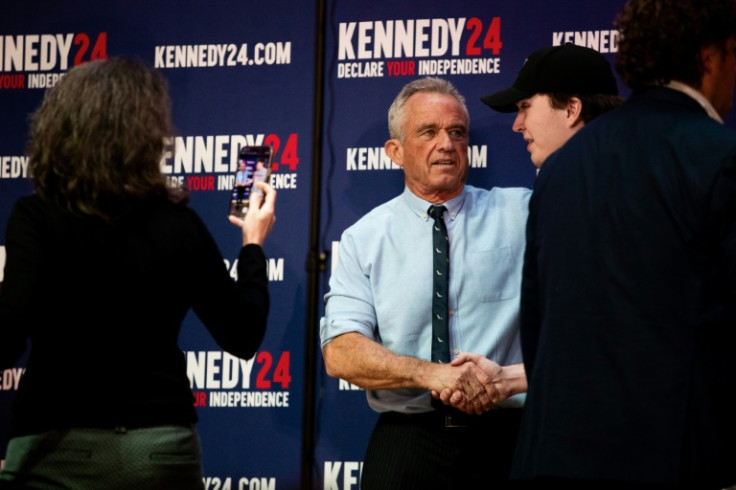
Robert F. Kennedy Jr. is using whatever cards he has left to have that opportunity to face President Joe Biden and former President Donald Trump on the debate stage, even though meeting the required qualifications set by the hosts remains an uphill climb.
Kennedy filed a complaint with the Federal Election Commission (FEC) and is moving forward with the ballot access campaign, which could spell the difference and help him meet the required threshold to get on the debate stage. However, even if this were so, there are still challenges ahead of him that he needs to meet, one of them being the polling requirements of CNN, The Hill reported.
In the complaint filed by Kennedy with the FEC against the campaigns of Biden and Trump, he alleged that he was not being offered an equal opportunity to debate. It also noted that the requirements allegedly breach election rules that are already in place.
Kennedy also pointed out that technically, neither of the nominees from the Democratic and Republican parties have yet met the ballot benchmarks.
"By demanding our campaign meet different criteria to participate in the debate than Presidents Biden and Trump, CNN's debate violates FEC law and is a large prohibited corporate contribution to both the Biden and Trump campaigns," Kennedy said.
Lorenzo Holloway, an attorney helping the Kennedy campaign, accused CNN of colluding with the independent candidate's rivals to keep him off the debate stage.
"The violations occurred when, based on the available evidence, CNN colluded with the Biden committee and the Trump committee to schedule and did schedule a debate with criteria that were designed to result in the selection of certain pre-chosen participants, namely Biden and Trump," Holloway pointed out in a letter.
CNN noted that it will be treating Biden and Trump as the "presumptive" nominees of the two major parties, even though it will still be on June 20 that they will be officially called the nominees of the Democrats and GOP. Kennedy, being an independent, still needs to show that states, which would add up to reach 270 electoral votes, have already certified his ballot access.
Forbes reported that Kennedy's campaign stated that he already has official ballot access in seven states, namely Utah, Michigan, California, Delaware, Oklahoma, Hawaii, and Texas, and that he has also gained enough signatures to put nine others, namely New Hampshire, Nevada, North Carolina, Idaho, Nebraska, Iowa, Ohio, New Jersey, and New York.







